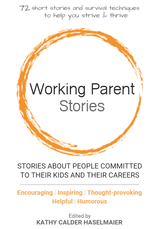|
As I mentioned in my recent Paris in the Springtime story, I vacationed alone in Paris last month. I landed back in Denver on a Friday evening, and in a mostly unplanned turn of events, my 23 year old son boarded the same plane and headed off to start his own solo travel adventure just a few hours later. I traveled alone in an attempt to add adventure to my life, and he traveled alone to visit friends he'd met when he studied in Sweden during his junior year of college. Since returning from my trip, people have said many interesting things to me including these comments from two very capable young women: "I wanted to do that, but my dad wouldn't let me" and "I could never do that!" These comments got me thinking. My experiences got me thinking too. The first thought is that, for me, traveling alone felt safer than traveling with others for the following reasons:
I'm so glad that my son had the opportunity to travel alone while he was living in Sweden, and I'm glad that he's willing to keep doing it now. Business travel is often a solo trip, so these experiences will only help him as he establishes his career. Experienced travelers are best able to focus on their job responsibilities when their work requires them to function away from their home base. If we want our daughters to be able to take advantage of opportunities to earn as much as our sons, we need to help prepare them for the work ... which often requires travel. It doesn't make sense to pay a person with less experience the same as a person with more experience. Instead of teaching our daughters to be fearful, let's teach them to be capable.
0 Comments
Disclaimer: This info is intended for people who are able to make general plans for their career in advance. It may also be helpful for people considering a career change.
Some people say that their job doesn't pay enough for them to be able to afford childcare. Or, to be more specific, their job doesn't pay enough for them to be able to meet the needs of their family, including childcare costs. Before you make plans to launch a career (and possibly incur the expenses associated with educating yourself for that career), find out which jobs don't pay enough to enable you to support a family (including childcare costs) and avoid those careers! It's also smart to avoid educational expenses that lead to careers that don't pay enough to enable you to repay student loans if you need them. The good news is that it's often possible to do something you will enjoy most days, without pursuing low paying jobs. For example, if you love teaching, but fear that being a school teacher won't pay enough to support the lifestyle you desire, consider becoming a corporate trainer which usually pays well. Or if you want to work with children, consider becoming a speech-language pathologist which can involve teaching children outside a traditional classroom. When people pursue jobs that pay well, in addition to meeting their own needs and enjoying the freedom that comes from some level of financial flexibility, they also help people in low paying jobs by lowering the supply of people pursuing those lower paying jobs. Basic economics teaches us that when supply becomes scarce, wages rise. And wages usually rise faster when supply is reduced than they do by complaining, striking, or attempting to legislate pay rates. Avoiding future frustrations takes planning and hard work, but it usually pays off in the end. By the time my husband and I decided to marry we’d already determined that he could cook better than I could, he cared more about food than I did, and he was happy to take on a permanent role, at least for the foreseeable future, as “chief nutrition officer” within the family we were planning to establish. So I literally found it funny (at least I hope I laughed) when his mother informed me that I would need to make his dinner after we were married because he would be very tired when he came home from work. The reason this was so funny was that we worked together. We met at work, we had similar roles and the same level of responsibility at work, we’d earned sort of similar degrees (mechanical engineering and computer science), and we had similar plans for the future (i.e. we both wanted to have children, raise a family and pursue our careers). So it really did strike me as funny that she mentioned he’d be tired at the end of the day. I remember thinking, and knowing me I probably said, “I think we’ll both be tired at the end of the day!” A few years later we were excited when I became pregnant. (And boy was I tired at the end of those days.) Lots of people asked me, “Are you going to work after the baby is born?” To be fair, I wasn’t sure. I wanted to work after the baby was born, but had heard so many stories, even from co-workers with children, about how hard it is to come back to work after having a baby because you just miss the baby so much, so I decided to keep my options open. After getting advice from an experienced mother and colleague, I told my employer that I would definitely be returning, but my husband and I agreed I would stay home if that felt like the better option. I loved my baby before she was born, so actually assumed nobody would find it harder to return to work after giving birth than me. The thing was, I did love my baby. A lot. Maybe more than any mother ever. But I also wanted to return to work, so I gave it a try. In order to ease my transition, my husband stayed home with our daughter for the first month after I returned to work. And I was OK. The baby seemed OK too. Even my husband was OK. So we tentatively decided to see if we could make it work. Two years ago, and two days after our little bundle of joy turned 26, I finally decided to let up at work, and I retired. I share this story because it highlights the fact that we don’t encourage men and women in the same ways when it comes to careers. Nobody ever told my husband that he should take on more work at home because I’d be tired after working all day, and nobody ever asked him (like not even one person) if he planned to return to work after our baby was born. To be clear, I’m not blaming anybody for anything. When things change and cultural norms shift, people have questions and sometimes they even ask them. That’s OK. It’s good. And it’s how we make progress. But, when we criticize women for pursuing careers with the same intensity as men and question their devotion to their children and families when they make the same career choices as men, we send them messages. Make no mistake about it. And those messages causes some women (but not all) to ease up, step back, and sometimes even drop out. And when that happens, and we all know that it happens, women’s ability to compete in the workplace is diminished. Companies, or at least the people who work at them, start to wonder if any given woman is really in it for the long haul. And many of the very capable women who could help close the wage gap, drop out of the game completely. It’s hard to be paid the same as a man if you’re not even getting paid. Anyone who is serious about wanting to close the wage gap, who thinks that their sons and daughters deserve the same pay when they deliver the same value, has got to help close the encouragement gap first. If you’re a woman who thinks that women deserve to be paid the same as men when they deliver the same value, start by staying in the game. If you’re an employer who wants to be able to say that you’re paying women the same as men when they deliver the same value, find ways to help your women employees understand that their contributions are valued and actually helping them become better parents. If you’re a man who isn’t afraid of competing with women when proving your value in the work place, find ways to mentor women who are interested. Change is never easy. That’s why we admire the people who make it happen. Be one of those people; a changemaker. Let’s close the encouragement gap. That may go a long way toward closing the wage gap.
Related Stories:
The gender pay gap gets lots of attention. We follow some of the discussions and are coming to a realization; working parents hold the key to eliminating much of it. Lots of research suggests that men and women, on average, are paid equally until they start to have children. After that, women's pay often starts to lag men's pay. Some of this can probably be attributed to the long term affects of taking a parental leave after a baby is born; on average women take parental leaves at far great rates, and for longer, than men. As we pointed out in the story Choices and Consequences, experience impacts pay, and every hour of experience matters. What's the solution? We're not sure that we know how to eliminate the gender pay gap completely, but we do feel confident that shared parental leaves are part of the answer. Just as men and women need to share household duties when they both work outside the home, fathers and mothers need to more equally share parental leaves after a baby is born. This seemingly small step is likely to further close the gender pay gap. Mothers, ask your spouse to stay home with your baby after you return to work. And when they offer to do this, accept the help! Fathers, offer to share parental leave responsiblities with your spouse. After your wife returns to work, return the favor and stay home for the same length of time to enable her to fully focus on her career for a bit (just like she did for you). As we point out in the story Couples That Work, husbands and wives need to support each other and push each other if they want to maximize success at home and on the job. Let's all do what we can to close the gap.
Commentary on a recent article in The Economist Most parents want their children to be paid fairly when they enter the workforce. They believe that compensation should correlate to value delivered, and that an employee's gender should not impact their pay. Many are passonate about the topic of "equal pay for equal work", and we recently wrote about some of them in the story "When Parents Act Like Corporations". The first step toward achieving equal pay is working (i.e. obtaining some pay ;). Then, if you want to compare your compensation to another employee's, you need to produce at least the same results or value as that person. Some fascinating data about the gender pay gap was recently published in the the story "Choices and Consequences". Some studies show that pay rates for men and women align until the birth of their first child. After that, women who have a child find that, on average, their pay dips. Many factors explain the dip, and some people are bothered by it. Researchers from Princeton, the London School of Economics, and the Danish Ministry of Taxation recently found that in Denmark, one of the greatest predictors for how a woman's pay will be impacted by having a child is the example set by her mother. Specifically, the example her mother sets in terms of how she manages her career. Apparently men's pay, on average, dips very little, if any, after their first child is born. You can read about this research in a short article in The Economist: The roots of the gender pay gap lie in childhood. So, if you're serious about wanting your daughter to be compensated at the same rate as the men she will work with, look no further than the example set within your own family. . . . Related note: A guy I know recently commented that we often give mothers most of the credit, as well as the blame, related to their children's opportunities and behaviors. We agree. At the same time, many couples believe that childrearing is a team effort, and neither parent's contribution is more important than the other's. Congratulations to all of the parents working so hard to support their children, each other, and their communities. It isn't easy, and that's why we admire you!
Inspired by a Freakonomics podcast: What Can Uber Teach Us About the Gender Pay Gap? The gender pay gap gets a lot of attention. Many theories try to explain why it exists. While many spend time speculating and theorizing about it, the folks at Uber have gathered data that provides new insights. People who value fair pay, including working parents, are likely to find this info pretty interesting. (And those who want to dig deeper into the data can listen to the Freakonomics podcast: What Can Uber Teach Us About the Gender Pay Gap?) Some believe that the gender pay gap could be reduced if workers had more flexible work hours. Uber offers its drivers total flexibility when it comes to hours worked. Some assert that those who control pay have unconscious (or conscious) biases that result in men being paid more than women for the same work. Uber pays drivers using a gender-blind formula based on the length of a ride in miles and minutes. Additionally, the fare (which determines pay) may include "multipliers" based on customer demand at any given time. Uber's pay structure is based solely on services provided, and it's non-negotiable. Some think that hiring can be a biased process, and we agree. At Uber work is assigned via an undeniably gender-blind process. This means that Uber is able to provide driver pay data that is virtually devoid of gender biases. As you might imagine, researchers were eager to sift through this data. And, for a variety of reasons, they expected women Uber drivers to out-earn men by just a little or at the very least to earn the same amount as men on an hourly basis. But guess what? That's not happening. The data shows that men make about 7% more per hour (on average) for doing the exact same job. And remember, this is in a setting where work assignments are made by a gender-blind algorithm, and the pay structure is tied directly to output and is non-negotiable. Interestingly, this 7% pay gap aligns with gender pay gaps uncovered by other studies within other work environments. So how do they explain this?! Before jumping to the answer, it's worth noting that the volume of data available for analysis was huge; 25M driver-weeks across 196 US cities over 22 months (June 2015 - March 2017). It included >1.8M drivers and >740M Uber trips. As the researchers dug deep into the data, here's what they found:
So while women have every opportunity to earn just as much as men when they're Uber drivers, the choices they make are lowering their average income slightly. In a nutshell, choices have consequences. This info is compelling for working parents because it makes it really clear that career choices always have consequences. A decision to opt out of the workforce, for even a relatively short period of time like a year, can have lasting consequences. Usually we understand that and are happy to live with the consequences. But sometimes people don't understand that even a short "break" from the workforce in the early years of a career will result in unexpected and significant consequences (not to mention frustrations) down the road. Working while raising kids is hard, but this data shows that those who figure how to make it work are more likely to find themselves satisfied over the long run if equal pay is important to them. We probably shouldn't be surprised to learn that Uber and the researchers have just confirmed that experience matters and hard work pays off.
|
The StoriesArchives
March 2022
Categories
All
|
Photos from barnimages.com, marcoverch, truewonder, donnierayjones, marcoverch, shixart1985, Gustavo Devito, edenpictures, nan palmero, quapan, The Pumpkin Theory, bark, opassande, Semtrio, Ivan Radic (CC BY 2.0), verchmarco (CC BY 2.0), Didriks, shawnzrossi, shixart1985 (CC BY 2.0), madprime, marksmorton, CT Arzneimittel GmbH, NwongPR, franchiseopportunitiesphotos, anotherlunch.com, jdlasica, wuestenigel, Frinthy, romanboed, Doris Tichelaar, quinn.anya, A_Peach, VisitLakeland, MEDION Pressestelle, Darren Wilkinson, bratislavskysamospravnykraj, Anthony Quintano, Danielle Scott, pockethifi, Bridgette Rehg, Martin Pettitt, PersonalCreations.com, wuestenigel, Thad Zajdowicz, archer10 (Dennis) 139M Views, Infomastern, beltz6, The National Guard, futurestreet, daveynin, OIST (Okinawa Institute of Science and Technology), Rinet IT, shixart1985, mikecogh, JeepersMedia, Ryan Polei | www.ryanpolei.com, Jake.Christopher., aleksandrajovovich, thepeachpeddler, wwward0, flossyflotsam, Got Credit, Senado Federal, Corvair Owner, lookcatalog, moodboardphotography, dejankrsmanovic, Carine fel, ElleFlorio, {Guerrilla Futures | Jason Tester}, greg westfall., Arlington County, mariaronnaluna, quinn.anya, wuestenigel, Tayloright, insatiablemunch, MrJamesBaker, Scorius, Alan Light, Monkey Mash Button, www.audio-luci-store.it, wohlford, Vivian Chen [陳培雯], okchomeseller, BoldContent, Ivan Radic, verchmarco, donnierayjones, Czar Hey, US Department of Education, Andrew Milligan Sumo, Michel Curi, anotherlunch.com, ProFlowers.com, Cultural viewpoints from around the world, alubavin, yourbestdigs, Rod Waddington, Tayloright, Wonder woman0731, yourbestdigs, donald judge, Thomas Leth-Olsen, Infinity Studio, shixart1985, wuestenigel, francesbean, Roger Blackwell, MrJamesBaker, Luca Nebuloni, MFer Photography, erinw519, boellstiftung, North Carolina National Guard, A m o r e Caterina, MrJamesBaker, bellaellaboutique, Free For Commercial Use (FFC), Prayitno / Thank you for (12 millions +) view, wuestenigel, Matt From London, MadFishDigital, Kompentenzzentrum Frau und Beruf, mikecogh, CreditDebitPro, marciadotcom, Mr.Sai, _steffen













 RSS Feed
RSS Feed